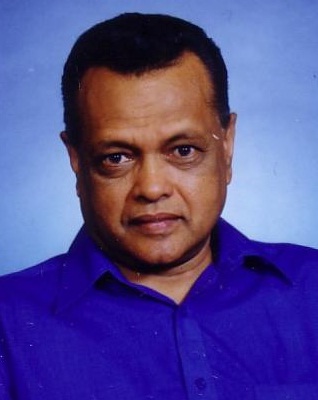 Fiji’s political parties have been jolted, as provisions of Political Parties (Registration, Conduct, Funding and Disclosures) Decree have now come into effect.
Fiji’s political parties have been jolted, as provisions of Political Parties (Registration, Conduct, Funding and Disclosures) Decree have now come into effect.
The provisions are intended to bring transparency and accountability, necessitating political parties to open their books for public scrutiny.
Responding to criticisms from political parties, Attorney General and then Acting Prime Minister Aiyaz Sayed-Khaiyum said on January 18, “If they do not have transparency issues, then they would not have problems in declaring their assets and liabilities in Fiji and abroad. This decree has a principled approach to accountability and transparency.”
Ten Commandments
Fiji Sun has highlighted ten points from the new rules. They are as follows:
1. Political parties may be funded only by membership fees and contributions from individuals and all sources of funding must be disclosed
2. No funding may come from foreign governments or non-government organisations
3. No funding can come from companies and they cannot provide services such as transport and accommodation, free or discount advertising or goods or services of any kind
4. All spending on election campaigns must be declared
5. Any one holding a political office must make a declaration of income and assets on behalf of themselves, their spouse and children. These include money and property in Fiji and abroad, along with their business interests, directorships and gifts. Liabilities if any, must also be listed
6. Election candidates must declare their income and assets in Fiji and abroad on behalf of themselves, their spouses and children and list their liabilities. All these declarations will be published in the Government Gazette;
7. Thirty days before the general election, each political party must list its assets and liabilities and submit it to the Registrar, who will publish the information
8. All political parties must keep proper books, which will be audited by a certified auditor and published in the Government Gazette
9. Political parties are also subject to a Code of Conduct and must strictly adhere to its provisions.
10. All political parties shall respond to the interests, concerns and needs of the Citizens, uphold democratic process and promote consensus building on issues of national importance. They should also promote patriotism and national unity, protect and promote democratic values and principles; respect human rights, human dignity, equity, social justice and non-discrimination; promote good governance and accountability. They should not engage in bribery and corruption or advocate racial or religious hatred, incitement or vilification
The publication asked, “How can anyone who wants a better Fiji argue against these provisions?
This decree has hit the leaders and functionaries of political parties where it hurts, as many see the Sun setting on their political fortunes.
What was left was the cover that hid deceit, lies, corruption, nepotism, discrimination and social injustice.
Restoring democracy
The current Government is working towards restoring democracy and the rules have been changed drastically to ensure that Fiji has the benefit of a democracy that upholds its core values, ushering a new era of unity among its ethnically divided people. They did not choose to segregate in racial compartments but their elected leaders found that ethnic divisions secured their political domination.
Indo-Fijians became the objects of ridicule and derision while their leaders showed ignorance and indifference. The pain and suffering of their people did not matter to them. The deposing of the Laisenia Qarase Government on December 5, 2006 by the army, marked the beginning of a new political journey, which augurs well for the future of the people of Fiji.
One person, one vote, one value would become the political mantra that will transform politics in Fiji, as a new generation of politicians would be ushered in to heal the wounds of the past and take the people and the nation of Fiji forward together. One nation – one people should have been the battle cry of Fiji politicians since independence but they chose not to for reasons, which does not require further amplification.
Genuine government
Although not an elected government, Prime Minister Josaia Voreqe Bainimarama and his officials have, through avowed policies and practices, performed better than any democratically elected Government in the history of Fiji.
It is accepted that there have been excesses but such these are common in authoritarian Governments.
While others try to achieve their objectives largely for their own benefit, the Bainimarama Government has done it for the good of all the people of Fiji, transcending the barriers of race, religion and culture.
A raucous minority largely advocates of racism and those who lost their power and perks for one reason or other, are crying foul. Many trade unionists who were lining up to be elected to the Parliament have been told that they would have to resign from their positions to contest the elections.
As 2014 draws closer, the political drama in Fiji will intensify.
Mr Bainimarama has become an international icon with his election as Chairman of the G77 countries and as Chairman of the International Sugar Council.
Many see his election as an endorsement of his policies in restoring democracy in Fiji. No other leader who usurped democracy achieved such distinction.
Rajendra Prasad is a thinker, author (Tears in Paradise) and writer. He lives in Auckland. Email: raj.prasad@xtra.co.nz






